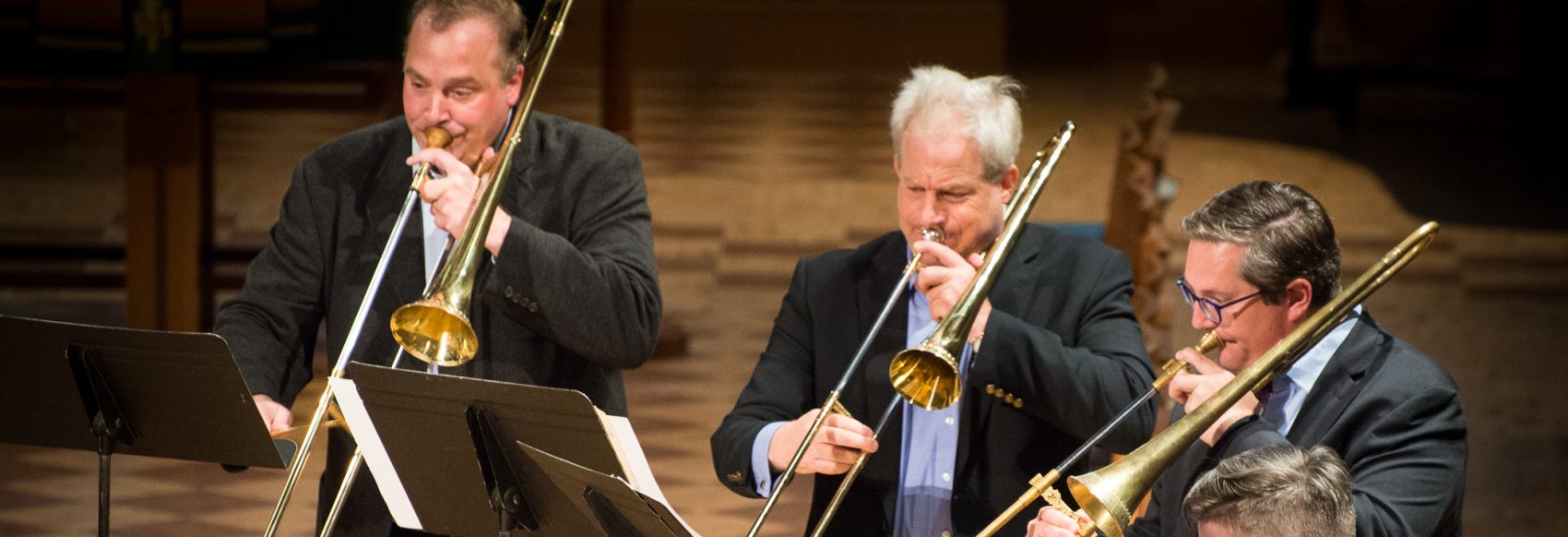Christ Church Cathedral | Map
Stephan MacLeod, bass; Veronika Skuplik, violin; Romina Lischka, viola da gamba; Francis Jacob, organ; Lucas Harris, theorbo; Cappella Borealis; Jeremy Berkman, sackbut; Alex Fisher, sackbut; Ellen Marple, sackbut; Nathan Wilkes, sackbut
The sixteenth and seventeenth centuries were a time of religious fervour and discord. German composers responded by setting deeply-felt texts into music, ranging from ardent expressions to faith to bitter laments in the face of war. Coming close on the heels of the 500th anniversary of the Protestant Reformation, this programme explores sacred music from Renaissance and Baroque Germany that gives voice to these feelings of devotion and loss, including masterworks by Johann Rudolf Ahle, Thomas Selle, and Heinrich Schütz. Celebrated bass-baritone Stephan MacLeod of Gli Angeli Genève joins Vancouver’s own ensemble of early wind instruments, Cappella Borealis, for this performance of splendid compositions for voices, sackbuts, and cornetti.
To download/view the programme page, notes, texts and translations, click here.
This concert is generously supported by Bryan & Gail Atkins
Click here for information about parking around / transiting to Christ Church Cathedral
Programme
Heinrich Schütz (1585–1672):
Attendite, popule meus
Giovanni Picchi (c.1571–1643):
Sonata XV from Canzoni da sonar con ogni sorte d’istromenti (1625)
– edited by Nathan Wilkes
Johann Walter (1496–1570),
Lupus Hellinck (c.1494–1541),
Balthasar Resinarius (c.1485–1544):
Three settings of Martin Luther, Aus tiefer Not
(adapted from Psalm 130, De profundis)
Sisto Reina (d.after 1664):
De profundis
Heinrich Schütz (1585–1672):
Fili mi, Absalon
INTERVAL
Biagio Marini (1594–1663):
Canzon terza à 4
Tarquinio Merula (c.1595–1665):
Credidi, propter locutus sum
Thomas Selle (1599–1663):
Domine exaudi
Giovanni Martino Cesare (c.1590–1667):
La Ioannina
Andreas Hammerschmidt (1611–1675):
Gott sey mir gnädig
Heinrich I. F. von Biber (1644–1704):
Nisi Dominus
Johann Rudolf Ahle (1625–1673):
Herr, nun lässt du deinen Diener
Programme Notes
400 years ago, religious war broke out on the European continent. The uneasy settlement reached in the mid-sixteenth century by the Holy Roman Empire’s Catholics and Protestants failed to hold, and a foul mixture of political intrigue and religious resentment led to thirty years of horror in the German theatre. In this anniversary year it seems appropriate to explore a variety of music that expresses themes of lamentation, penitence, and the depths of faith in an unsettled age, drawing especially on sacred music from this region.
Tonight’s programme highlights a small but deeply felt repertory of seventeenth-century music scored for solo bass voice, sackbuts, cornetto, and violin. By this time the bass voice was often coded as authoritative, kingly, and even godly (the vox Domini or “voice of the Lord”), and it seems no accident that the 150 Psalms of King David were seen as ideal vehicles for the bass to express emotions of supplication, lamentation, and thanksgiving. Combined with sackbuts, the bass has a powerful effect. The sackbut, ancestor to the modern trombone, had a variety of functions since its invention in the late fifteenth century, but by this time was closely associated with church music, normally playing together with choirs in some of the more sumptuous church ensembles of the period in cities like Munich and Venice. Later, trombones would retain their association with religious profundity: one thinks of the great Mass settings of Haydn and Mozart (recall “Tuba mirum” from Mozart’s Requiem), or the sublime final movements of Beethoven’s 5th and 9th Symphonies. In the early seventeenth century, the sackbut was considered by the theorist and composer Michael Praetorius to be an enormously flexible instrument, capable of making fine adjustments to pitch that were much more difficult on instruments with finger holes. They continued to be featured prominently with voices in the church music of that century, but some composers, such as Heinrich Schütz, explored the instrument’s capacity as a solo and obbligato instrument. In the Renaissance sackbuts were often joined in the upper register by cornetti, curved wooden instruments with brass-style mouthpieces; in the Baroque era the cornetto was gradually supplanted by the violin as the primary melody instrument. Tonight we have the opportunity to explore the sounds of these two instruments singly and in dialogue with one another and the full ensemble.
Our concert begins, appropriately, with a proclamation: Attendite, popule meus (Ps. 78:1–3) is King David’s appeal to his people to attend to God’s goodness and to repent their sins. Attendite is one of two famous sacred concertos drawn from Heinrich Schütz’s first book of Symphoniae sacrae (1629), written in the wake of his recent trip to Venice, where he likely heard all manner of splendid church music for small ensembles (did he meet Monteverdi? Sadly, we do not know). Typically for this collection, Schütz alternates passages for the solo voice with purely instrumental “sinfonias”, bringing the entire ensemble together at various points within the piece and in the grand conclusion. While in Venice Schütz possibly met or heard the music of Giovanni Picchi, whose fifteenth sonata for six instruments shows off the different instrumental colours on offer tonight. We then return to penitential themes: Martin Luther’s translation of Psalm 23, Aus tiefer Not schrei ich zu Dir (“From deepest need I cry unto You”), was perhaps the most profound expression of penitence for early modern Germans. An early and famous chorale, it features a striking opening that descends by the interval of a fifth. 16th-century settings by Johann Walter (Luther’s musical protégé), Lupus Hellinck, and Balthasar Resinarius explore this profound melody in different instrumental and vocal combinations. We follow this immediately with a setting of the original Latin Psalm, De profundis, by Sisto Reina, a northern Italian Minorite monk and composer who published several collections of vocal and instrumental church music for smaller ensembles. The spirit of lamentation is expressed clearly in the opening by the languid chromatic descents of the violin and cornetto. The first half of our programme concludes with perhaps the best-known work for sackbut quartet and solo bass, Schütz’s Fili mi, Absalon, also from his first book of Symphoniae sacrae. The brief text records King David’s lament on the death of his third son, Absalom, who had rebelled and raised an army against him. Despite this treachery, David’s wails for his son and wishes he could have died in his place. In Schütz’s setting the four sackbuts provide sinfonias at the opening and mid-point of the piece, anticipating and echoing the wailing motives of the bass. With the sackbuts joining together with the voice, Schütz offers a conclusion of special intensity and gravity.
The second half of our programme continues the theme of supplication, enlivened by the rich colours of early seventeenth-century instrumental music. We begin with a short but splendid canzona for four trombones by Biagio Marini, a talented violinist who likely worked with Monteverdi in Venice but spent considerable time in Germany at the Wittelsbach courts in Neuburg an der Donau and Düsseldorf during the 1620s. A counterpoint to this work for violin and cornetto alone will be heard in La Ioannina by Giovanni Martino Cesare, a native of Udine who performed for the Munich court. Four more settings from King David’s Psalter form the core of this half of the programme. Tarquinio Merula, who shuttled back and forth between Bergamo and Cremona, set many Psalms for small ensembles: his Credidi, propter locutus sum (Ps. 115) continues the theme of penitent supplication answered by God’s grace, the bass’s prayer interweaving with cascading runs by the violin and cornetto. The sackbuts return for Thomas Selle’s Domine exaudi (Ps. 101), underlining the bass’s cry to God (“O Lord, hear my prayer”) with a powerful, chordal opening; the narrator’s plea to God to speedily hear his prayer (“velociter exaudi me”) excites the instruments into quicker passagework. The setting of Nisi Dominus (Ps. 126) by Heinrich Ignaz Franz von Biber, composer for the Catholic Archbishop of Salzburg, is perhaps the most unusual and striking of the works on tonight’s programme, joining a violin part of the highest virtuosity to the proclamations of the solo bass. The violinist’s double-, triple-, and quadruple-stopping, quick flourishes, and athletic arpeggiations make for an arresting contrast with with the other Psalm settings on tonight’s programme. Framing the Biber Psalm are two settings of texts in the German language by Andreas Hammerschmidt and Johann Rudolf Ahle. Hammerschmidt’s Gott sei mir gnädig, following Luther’s translation of Psalm 51 (“Have mercy on me, O God”) features an unusual scoring for bass in constant dialogue with just two trombones. Our programme ends with the German-Lutheran translation of the Canticle of Simeon (Nunc dimittis in Latin), which concluded the evening Office of Compline in the traditional liturgy. In the Gospel of Luke, we hear of a aged, devout Jew, Simeon, whom the Holy Spirit promised to spare from death until he had seen the Messiah. Having seen the child, Simeon breaks out into song (“Lord, now let Thy servant depart in peace”). In Ahle’s setting of the Canticle, Herr, nun lässt du deinen Diener, Simeon’s opening exclamations (Herr! Herr!) are anticipated by rising figures in the trombones, and his joy at seeing the Lord moves Ahle to switch to a dancelike triple metre, a joyous and spirited ending to our programme.
Alex Fisher
Texts and Translations
To download/view the programme page, notes, texts and translations, click here.
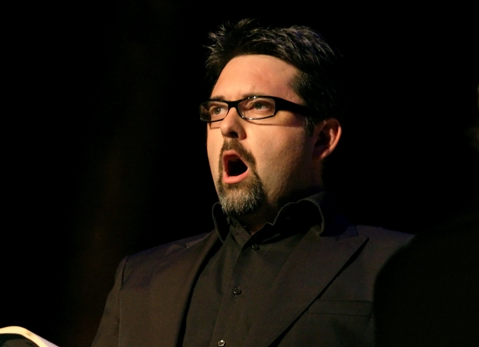
Stephan MacLeod, bass
Born in Geneva, Stephan MacLeod first played the violin and the piano and then studied singing with Kurt Moll in Cologne and with Gary Magby in Lausanne. Active all over the world as a renowned concert singer since his early twenties, his desire to conduct led him to establish his own ensemble, Gli Angeli Genève, in 2005. The ensemble has since become one of the most respected European ensembles specializing in period performance. In recent years, he has been invited to conduct a production of Cavalli’s La Calisto in Geneva, Mozart concerts at the Lausanne Opera, a production of Sondheim’s Sweeney Todd in Geneva, Bach Motets with the Netherlands Bach Society, Bach’s Matthew Passion in Switzerland, Germany, and the Netherlands, and orchestral works by Bach and Rameau with the Orchestre de la Suisse Romande.
As a soloist, Stephan is particularly active in the oratorio repertoire, particularly under Philippe Herreweghe, Gustav Leonhardt(†), Franz Brüggen(†), Masaaki Suzuki (Bach Collegium Japan), Jordi Savall, Philippe Pierlot (Ricercar Consort), Michel Corboz, Daniel Harding, Václav Luks, Sigiswald Kuijken, Konrad Junghänel (Cantus Cölln), Christophe Coin, Helmut Rilling, Frieder Bernius, Jos Van Immerseel, Jésus López Cobos, Hervé Niquet, Paul Van Nevel (Huelgas Ensemble), and with such ensembles as the Akademie für Alte Musik Berlin, Musica Antiqua Köln, the Freiburger Barockorchester, Tafelmusik, and the RIAS-Kammerchor. In the opera world, he has sung in several productions in Brussels (La Monnaie), Venice (La Fenice), Cologne, Bilbao, Edinburgh, and Geneva.
Stephan currently holds a professorship in singing at the Haute Ecole de Musique of Lausanne and is about to embark on a new concert series with Gli Angeli featuring performances of the complete Haydn Symphonies.
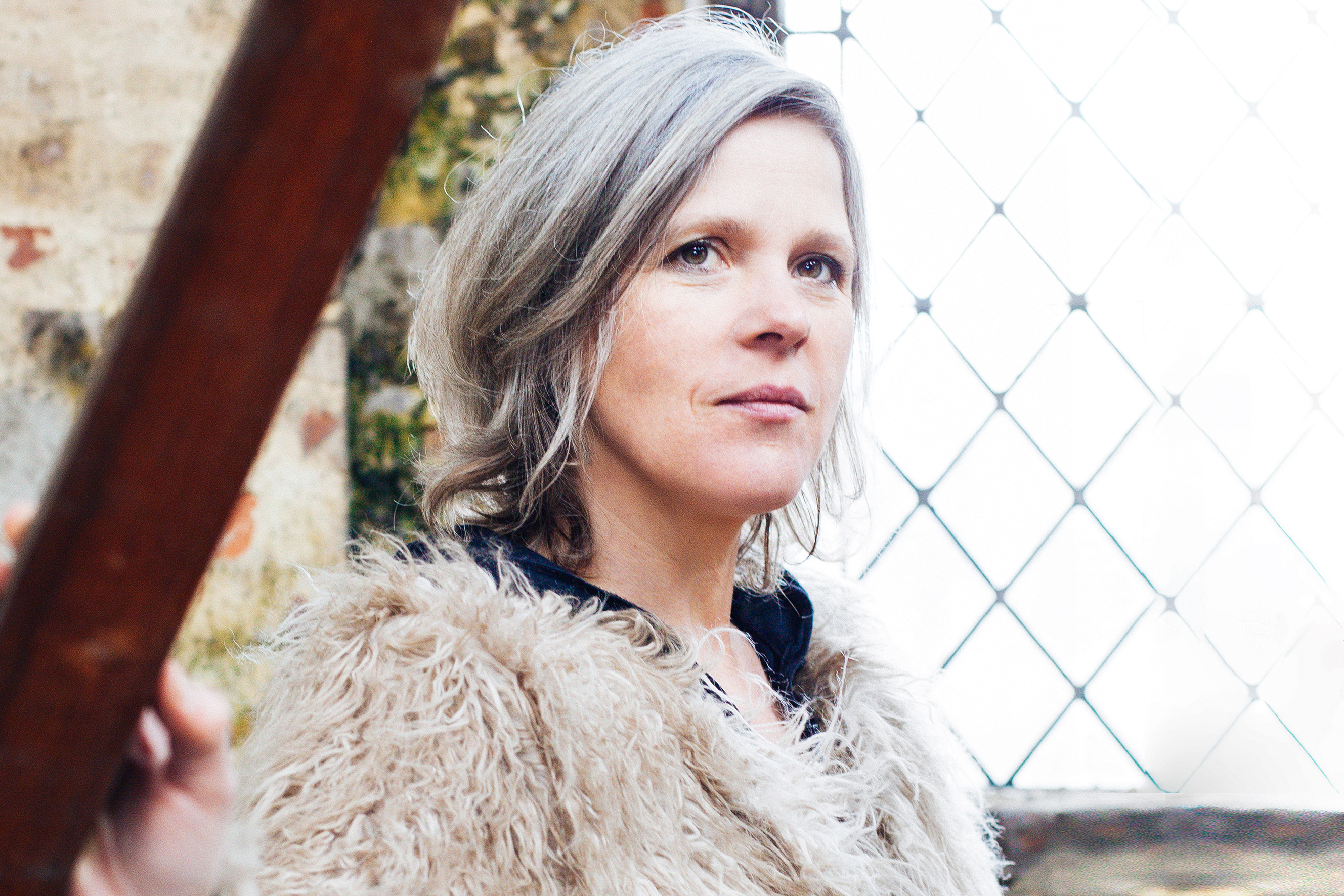
Veronika Skuplik, violin
Veronika Skuplik started her violin studies at Folkwang University of the Arts, Essen, and went on to study baroque violin at the University of the Arts, Bremen, with Thomas Albert. She also studied German language, Musicology and Pedagogy at the Westfälische Wilhelms University. She is now a teacher in the Early Music Department of the University of the Arts Bremen and has a studio of students from as far afield as Hungary, Spain, Portugal, Russia, and Columbia. She has recently led courses, master classes and orchestral projects at the music colleges of Utrecht (Netherlands), Malmö (Sweden), Katowice (Poland) as well as at Oberlin and Carnegie Hall in New York (USA).
Veronika naturally gravitates towards repertoire of the 17th century, which she loves for the room it leaves for improvisation as well as its close connection to singing and rhetorical techniques of the time. Colleagues, audiences and critics all appreciate her speaking and singing manner of making music. She now mainly plays with ensembles that take a “one to a part” approach such as l’Arpeggiata, Concerto Palatino, Weserrenaissance, Collegium Vocale Gent, and in her own ensemble La dolcezza. She also regularly tours programmes of chamber music with her close musical partners Kris Verhelst (harpsichord/organ) and Andreas Arend (Lute). In recent years, concert tours have led her through Europe, US, Israel, New Zealand, and Australia. Her discography includes more than 90 recordings on labels including Harmonia mundi, Virgin, APO, Alpha, Chrismon, and others.
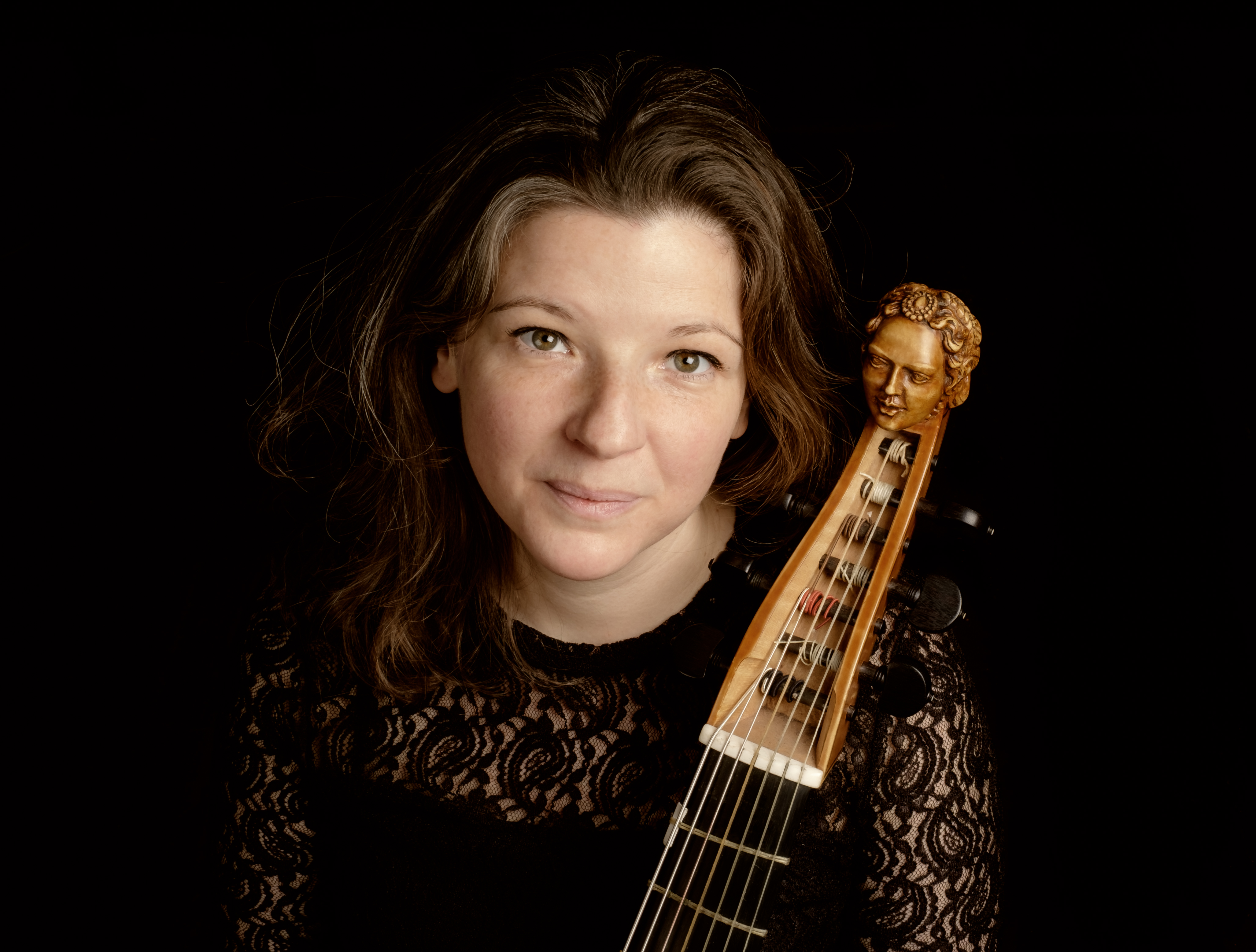
Romina Lischka, viola da gamba
Romina Lischka bridges the boundaries between cultures and genres by forging her own artistic language in which classical, contemporary and world music traditions cross paths. Since 2007, her concert activities have brought her to prestigious concert halls and festivals throughout Europe, Russia, Asia, Canada and North and South America. Ms. Lischka performed the premier of George Benjamin’s opera Written on Skin and has travelled with this production to the Opéra Comique (Paris) and the Bolshoi Theater (Moscow).
She has also toured with the Mahler Chamber Orchestra throughout Europe and with the Shanghai Symphony Orchestra in China. Alongside her activities as a gambist, Ms. Lischka also studied Dhrupad at the World Music department of the Rotterdam Conservatory (Bachelor, 2010) and in India (Delhi and Pune) with Ustad Fariduddin Dagar and Uday Bhawalkar. In the 2012-13 season, Romina was chosen as the early music ‘ECHO Rising Star’ by the BOZAR (Brussels) and Concertgebouw (Amsterdam).Her debut CD Pièces de viole de Sieur de Machy received the top five star rating by Diapason. The CD En Suite – Marin Marais, &Sainte Colombe was awarded the Klara prize for ‘Best classical CD of 2015.’ In 2018, she also received the Klara award as ‘Soloist of the Year.’ For the saison 2019-20 she was ‘Portrayed Artist’ of BOZAR and in 2021 she received the Ultima award for the Music category.
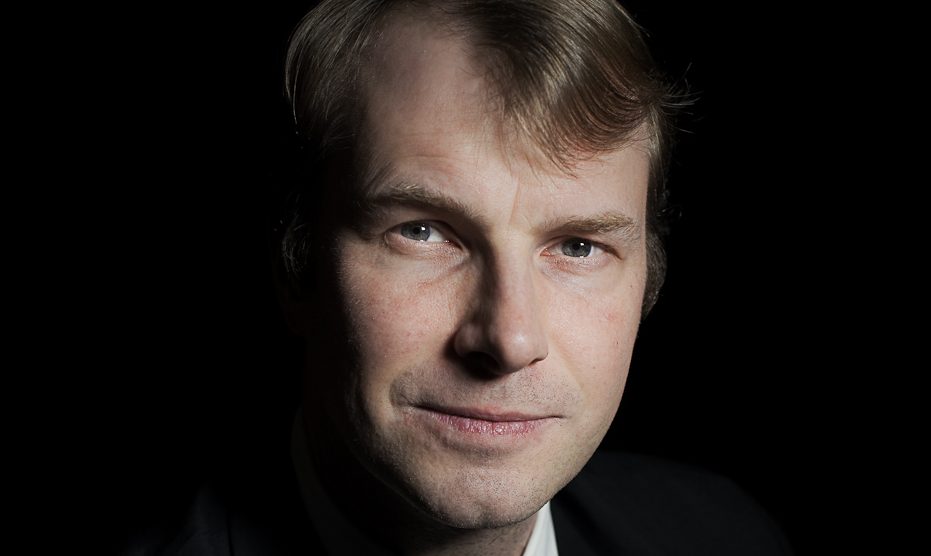
Francis Jacob, organ
Francis Jacob studied organ and harpsichord with Sylvain Ciaravolo, André Stricker, Aline Zilberajch, Martin Gester (Strasbourg), Jean Boyer (Lyon), Jan-Willem Jansen (Toulouse), and Jesper Christensen (Basel). He was winner of several organ competitions including the Guilmant competition in Boulogne-sur-Mer, 1987, and the international organ competition of Bruges, Belgium, 1997.
He has performed all over Europe as a solo performer as well as in ensembles including the Ricercar Consort, Le Concert Royal, Eloquentia, and others. He taught organ and harpsichord in the conservatoires of Perpignan, Toulouse and Montauban since 2001. He has taught organ in the Conservatoire of Strasbourg. He is the organist of Saessolsheim, Alsace, performing on an instrument built by Bernard Aubertin. Along with the local organ association, he has established an important musical life around this impressive organ with a programme of concerts, masterclasses and CDs.
Francis Jacob has recorded CDs of 17th, 18th, and 19th century works on various Aubertin organs in France. His recording of the Clavierübung III of J. S. Bach on the organ in Saint-Louis-en-l’Isle in Paris was especially highly acclaimed by both audiences and the press. He maintains a lively interest in harpsichord and organ building, which he practices with Bernard Aubertin.
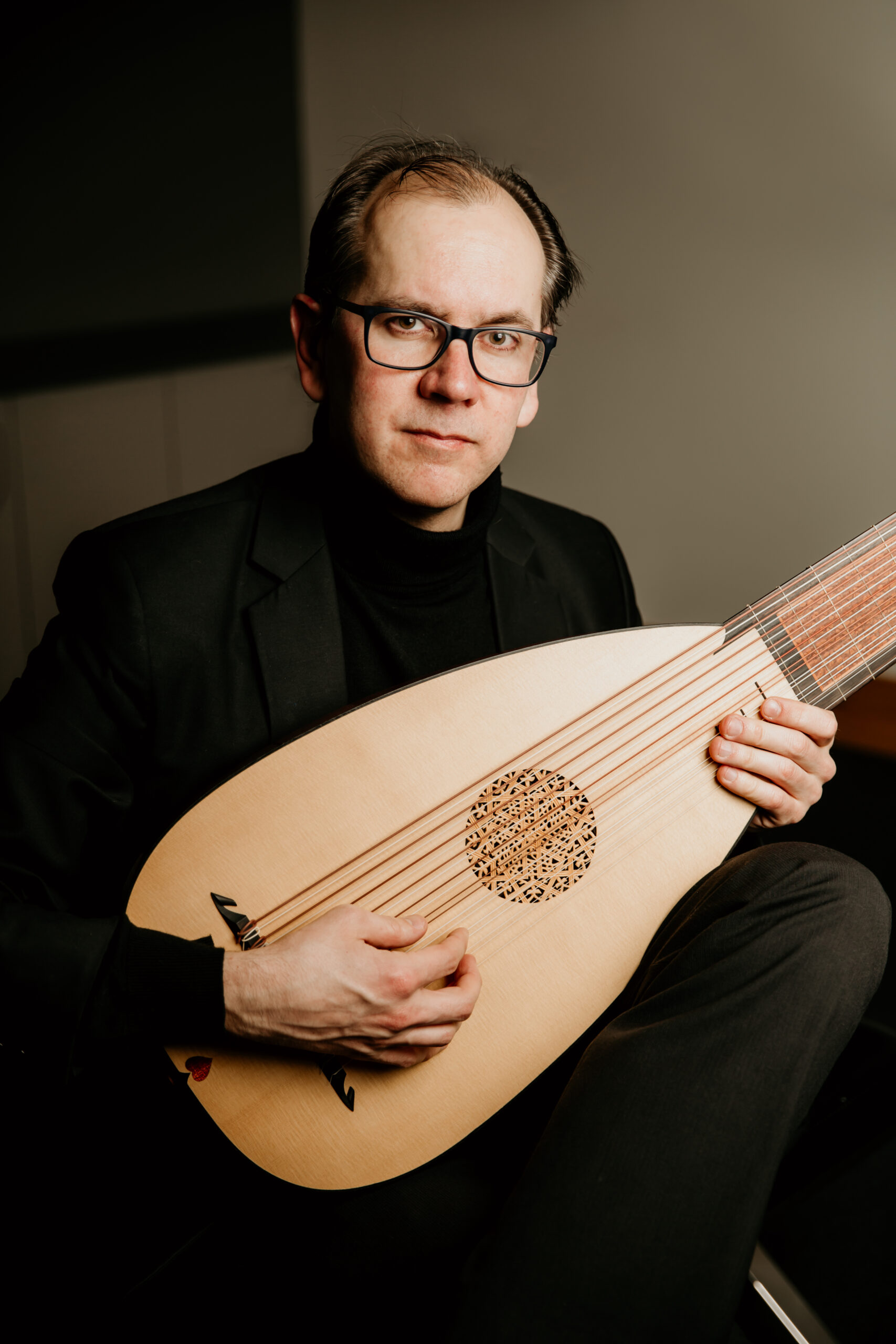
Lucas Harris, theorbo
Toronto-based Lucas Harris discovered the lute during his undergraduate studies at Pomona College, and went on to study the lute and early music at the Civica scuola di musica di Milano and at the Hochschule für Künste Bremen. He is a founding member of the Toronto Continuo Collective, the Vesuvius Ensemble and the Lute Legends Collective (an association of specialists in ancient plucked-string traditions from diverse cultures) and is the regular lutenist for Tafelmusik Baroque Orchestra. Lucas plays with many other ensembles in Canada and the USA and has worked with the Smithsonian Chamber Players, Atalante, and Jordi Savall / Le Concert des Nations amongst others.
He teaches at the Tafelmusik Summer and Winter Baroque Institutes, Oberlin Conservatory’s Baroque Performance Institute, and the Canadian Renaissance Music Summer School, and is a regular guest artist with Early Music Vancouver. Lucas is also the Artistic Director of the Toronto Chamber Choir, for which he has created and conducted more than twenty themed concert programs. One of Mr. Harris’ many pandemic projects was the reconstruction of 12 solo voice motets by the Italian nun Chiara Margarita Cozzolani.
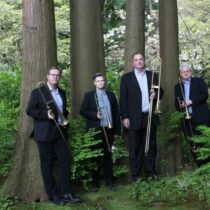
Cappella Borealis
Cappella Borealis was founded in 2015 as Vancouver’s own ensemble for early brass music. Consisting of Jeremy Berkman, Alex Fisher, Ellen Marple, and Nathan Wilkes, all performers on the early trombone (or “sackbut”), Cappella Borealis explores a range of repertoire from the Renaissance and Baroque periods featuring early brass, often in combination with voices and other instruments. The ensemble has appeared in various presentations by Early Music Vancouver, musica intima, and in other venues.
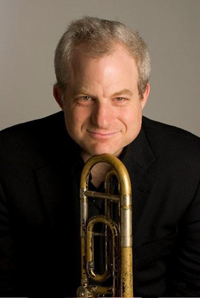
Jeremy Berkman, sackbut
Tenor Sackbut player Jeremy Berkman was first inspired to learn the trombone through listening to recordings of Gabrielli Canzoni every holiday season growing up. Despite also spending time when young learning to play alto recorder, it is more modern music that overtook his education and led him to complete degrees in music at Oberlin Conservatory and the Juilliard School. He currently holds leading positions with Vancouver Opera’s Orchestra, A Touch of Brass Quintet, the Jill Townsend Big Band, cellist Peggy Lee’s sexet (The Peggy Lee Band) and Turning Point Ensemble, where he also serves as Director of Education and Community Engagement. Honoured with Vancouver’s Mayor’s Award for music in 2011, Jeremy has found in Vancouver a community of entrepreneurial, creative, and talented colleagues with whom he has joined to participate and in some cases produce numerous incredibly inspiring musical and interdisciplinary efforts. He is very thrilled to be invited by Jacob Gramit to participate in this Lutheran Vespers for Troubled Times production, and find in its music-making the circles of life and truth.
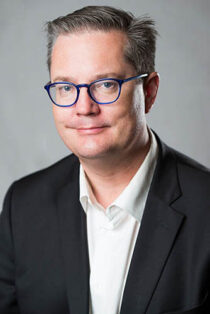
Alex Fisher, sackbut
Alex Fisher is a co-founder of Cappella Borealis and Professor of Music at the University of British Columbia since 2002. A native of Massachusetts, he studied trombone at Northwestern University (B.Mus., 1992) and received degrees in musicology from Indiana University (M.A., 1995) and Harvard University (Ph.D., 2001). A musicologist specializing in the music and soundscapes of Germany in the Renaissance and Baroque eras, he is the author Music and Religious Identity in Counter-Reformation Augsburg (Ashgate, 2004) and Music, Piety, and Propaganda: The Soundscapes of Counter-Reformation Bavaria (Oxford, 2014), as well as of a range of articles and editions on music and religion in the post-Reformation era. He began studying sackbut and early winds at Northwestern University and has performed with the Indiana University Early Music Institute, musica intima, La Modestine, and in various productions of Early Music Vancouver.
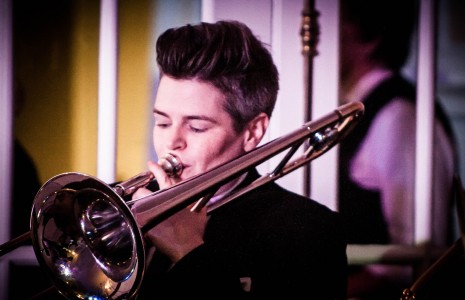
Ellen Marple, sackbut
Ellen Marple is active in the Vancouver, British Columbia music scene both as a freelance low brass musician and an educator. In May of 2010 she completed a Masterʼs Degree in Trombone from the University of British Columbia which had a split focus on contemporary trombone music, under the direction of Jeremy Berkman and early music under the direction of Ray Nurse. Performing regularly in a wide variety of musical styles, Ellenʼs freelance career includes early music, chamber, orchestral, latin, jazz, reggae, hip hop and indie rock. Placing importance on fundamental brass skills, she encourages her students to work across genres and explore different musical styles. Performances and recordings of note are with: the Vancouver Symphony Orchestra, the Salsa Dura Ensemble led by Sal Ferreras, the Fred Stride Jazz Orchestra, Dan Mangan, The Salteens, Parlour Steps, C.R. Avery, Pendomoja, Vancouver Island Symphony, University of North Texas Wind Ensemble and the 2008 Festival of Ideas period performance of Monteverdiʼs Orfeo, directed by Ellen Hargis.

Nathan Wilkes, sackbut
Nathan Wilkes studied bass trombone at Oberlin Conservatory with Per Brevig and Ray Premru, and completed doctoral studies at UBC, where he studied with Doug Sparkes. He has also studied early music performance (sackbut) with Bruce Dickey. He enjoys playing medieval, renaissance, and baroque wind instruments, and is a member of Chanterie Medieval Vocal Ensemble.

